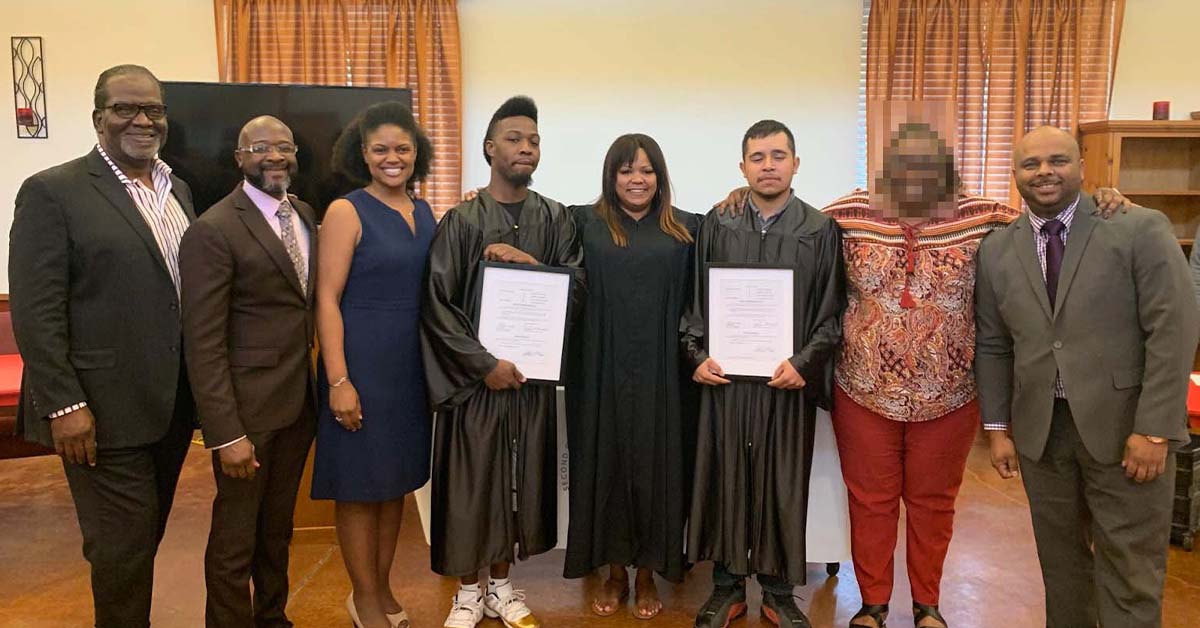TransformativeJustice
The crisis of mass incarceration of our youth and emerging adults (17-24) demands that we work now to transform the way our current criminal legal system responds to them. LSJA’s Transformative Justice model works to implement solutions that change the way the current criminal legal system and community thinks about and responds to the behaviors of youth and emerging adults. We do this by assessing current justice system processes and procedures and implementing innovative solutions to shift from a punitive and retributive system to one that focuses on the underlying unmet needs that drive system involvement.
JustCareers
LSJA’s community-based, flagship workforce diversion program for 18–24-year-olds, developed in partnership with the Texas Department of Transportation. This innovative “earn to learn” program – the first of its kind – provides participants 12 weeks of full-time training, 3 days a week of classroom learning, and 2 days a week at an internship with a local employer, ultimately earning a heavy equipment certification and entering full time employment after graduation.
Diversion Programs
into the community

Williamson County Transformative Justice Program (Formerly RISE)
LSJA partnered with Williamson County’s District Attorney Shawn Dick, Hon. Stacey Mathews, and the Chief of Juvenile Services, Scott Matthew, to launch the RISE Program (now Transformative Justice of Williamson County). The program is Williamson County’s first felony alternative to incarceration.
This program relied upon LSJA’s transformative justice model to serve the needs of justice-involved emerging adults in the community.

Dallas County Second Chance Community Improvement Program (SCCIP)
LSJA partnered with the Dallas County Public Defender’s Office to implement our transformative justice model in the Dallas County Second Chance Community Improvement Program (SCCIP). Over two years, LSJA trained Dallas County employees, staff and contractors in evidence-based practices to better serve justice-involved emerging adults.
LSJA designed the framework for a randomized control trial to evaluate the results of the shift to a public health, community-focused intervention strategy.
